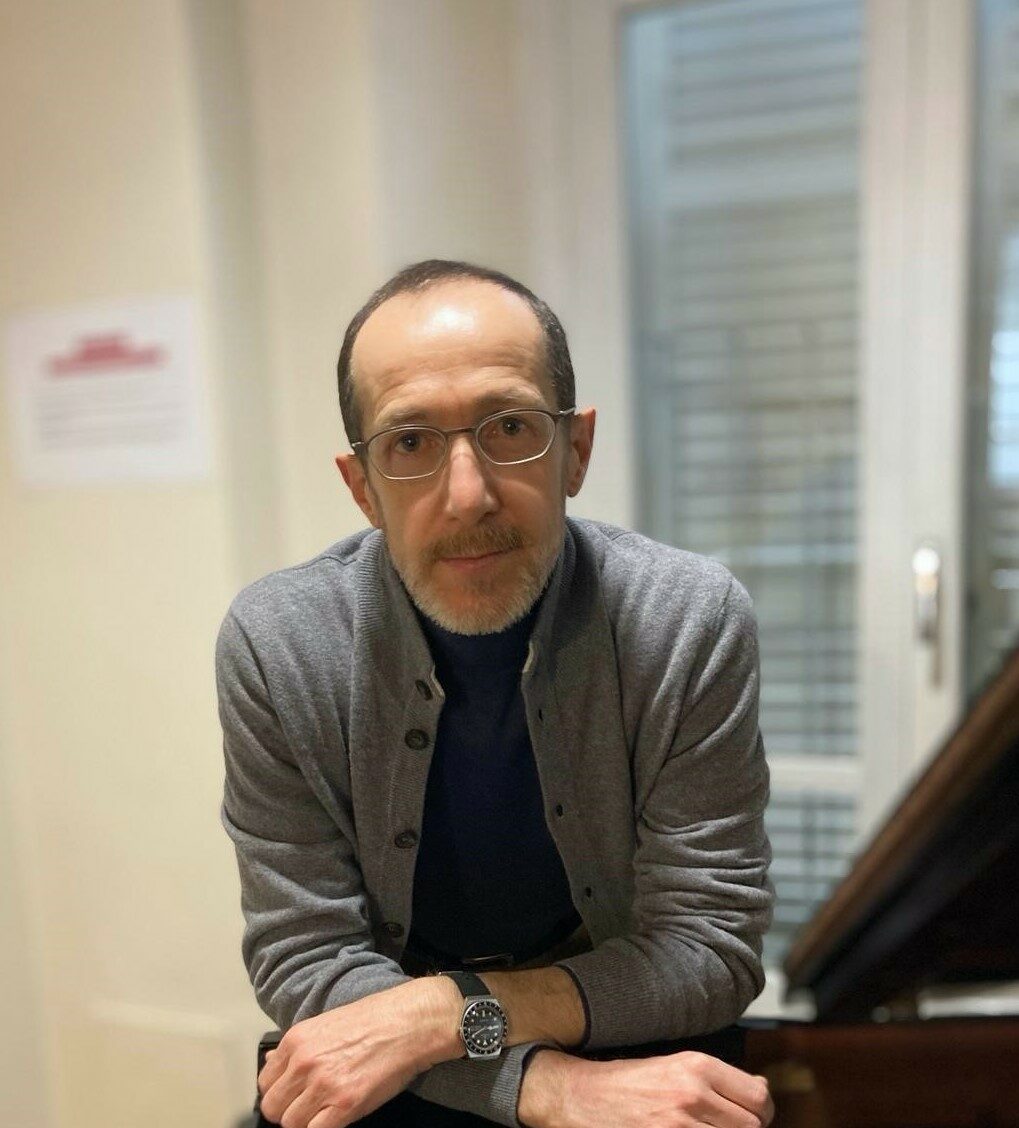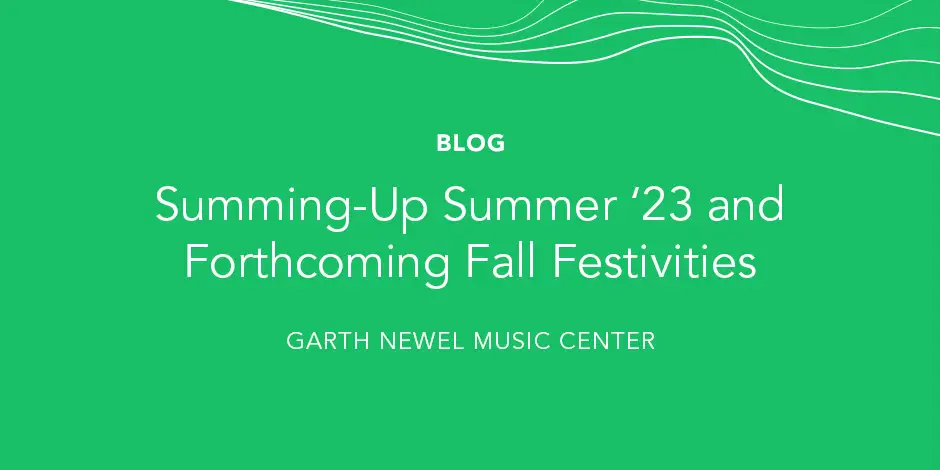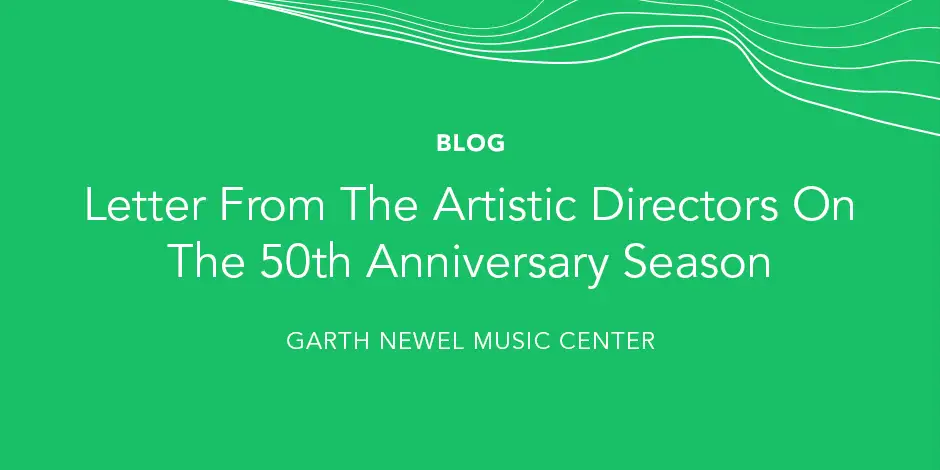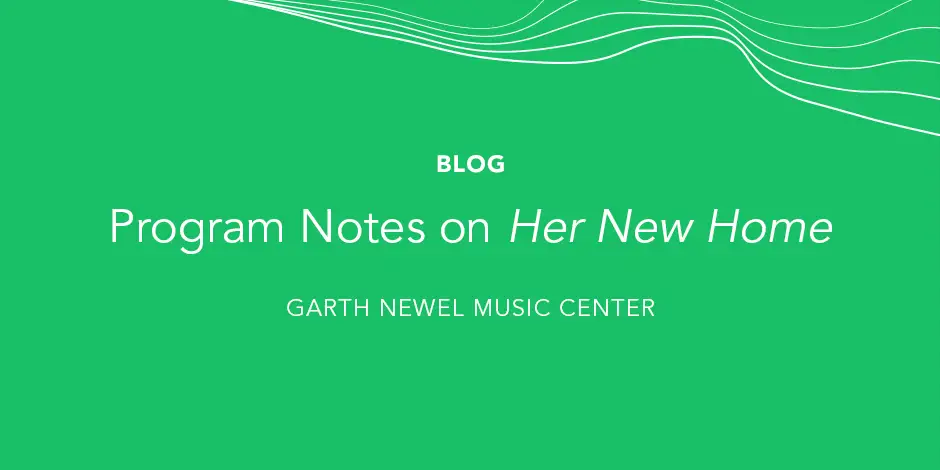Walter Willson Cobbett may not have composed symphonies or even picked up an instrument as a child, but his influence in the world of chamber music is so far-reaching that it is felt more than a century later at Garth Newel.
I suppose anyone with a lot of money has the capacity to make an impact on history, but when you combine money with an impassioned mission, that impact is guaranteed and long-lasting.

Cobbett (1847-1937) had made his fortune in the world of British transmission belt manufacturing, but his true love was the same as yours or mine: for chamber music. And like many of you, this passion was ignited by a Beethoven string quartet, which inspired him to take up the violin himself to become, by all accounts, “an extremely competent amateur”. (Those accounts also tell us that he would practice 2 hours a day up to his 90s). He then went on to form the Cobbett’s Cyclopedic Survey of Chamber Music, the Free Library of Chamber Music and the Chamber Music Association.
Ok, but how does that impact Garth Newel, which lies continents and eras away?
Well, because Cobbett’s most important contribution was not in databases or institutions, but in the formation of his composition competition, which is responsible for a reviving the 16th & 17th century phantasy genre of Britain (played in those days by viol consort), and in turn creating a brand new genre of shorter chamber works.
I reflected that in literature there are the lyric and epic poem, the short story and the long novel; in the orchestra, besides the symphony, the overture and the symphonic poem; but that in chamber music there is only one form that counts […] and I concluded that a new type suited to the needs of the chamber music composer was needed. – WW Cobbett (in his 1911 address to the Royal College of Music)
Like a true philanthropist, Cobbett saw injustices as opportunities to help. When he noticed that in his beloved art form of chamber music, there only existed the long multi-movement meat and potatoes fare in the flavor of Brahms, Beethoven, and Schubert, he launched The Cobbett Phantasy Prize in 1905.
“The parts must be of equal importance, and the duration of the piece should not exceed twelve minutes. Though the Phantasy is to be performed without a break, it may consist of different sections varying in tempi and rhythm. The competitor whose work afforded in the opinion of the judges the best example of an Art form suited for a short piece of Chamber music with strings” would receive 50 guineas.
(As well as future commissions from Walter Cobbett. He became more and more obsessed with the form of the Phantasy and pushed for it to become Britain’s national music. Practically speaking, he saw the shorter chamber works as a way to engage the “average listener”, and thought it important to commission more and more of them from composers who had gained attention from his competition).

You might not know it, but quite a few of the works you might have heard at Garth Newel throughout the years have been compositions that came as a result of this competition. You might remember Benjamin Britten’s Phantasy Quartet, played last summer with oboist Aaron Hill, which Britten composed right after he won the 1932 Cobbett Competition for his Phantasy Quintet and became enraptured with the genre. For the first concert of our upcoming Archduke Weekend, we will be playing the winner of the 2nd Cobbett Competition of 1908, James Friskin’s Phantasy in e minor for piano trio. James Friskin is a Scottish composer who eventually settled in New York as a professor at Juilliard, but had studied at the Royal College of Music in Britain during the time of Cobbett’s announcement. He had actually entered the first competition in 1905 as well, and had received a consolation prize of 5 guineas for his Phantasy in D Major for String Quartet. Bolstered by the attention he got from his entry, he entered again and got 2nd place for the atmospheric and expressive trio that evokes a journey through heady fog-enveloped mountainscapes.
You can see manuscripts of these winning works and an account of the competition from this site .
After the first two competitions, Walter Cobbett went on to commission 12 British composers to write more phantasies each with different instrumentation. One of the most beautiful from these commissions, (and Cobbett’s personal ideal for what he idealized as the “new phantasy”) was Vaughan William’s Phantasy String Quintet.
Of course, the indefatigable Cobbett kept himself busy, sponsoring a variety of prizes at the Royal College of Music, and creating an endowed medal for services to chamber music that was issued each year by the Worshipful Company of Musicians. Not only did he create a brand new genre of chamber music, but his competitions inspired a prodigious amount of great new works that are still being programmed in such music centers as our own.
And here’s another cool thing. His groundbreaking competition inspired the Berkeley Ensemble to create the New Cobbett Prize, a competition that continues the mission of Cobbett to promote the creation of new chamber works.
James Friskin’s Phantasy in E minor will be performed Friday, May 26, at 7pm. For more information, visit our event page











